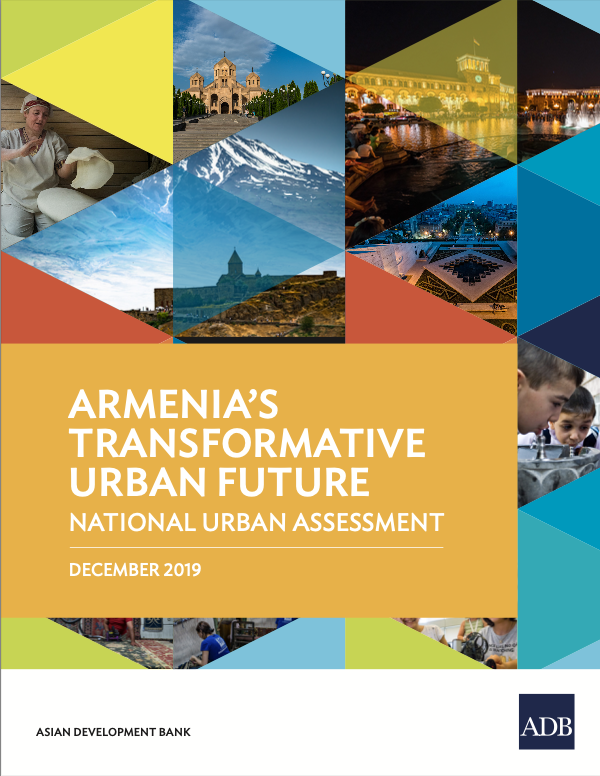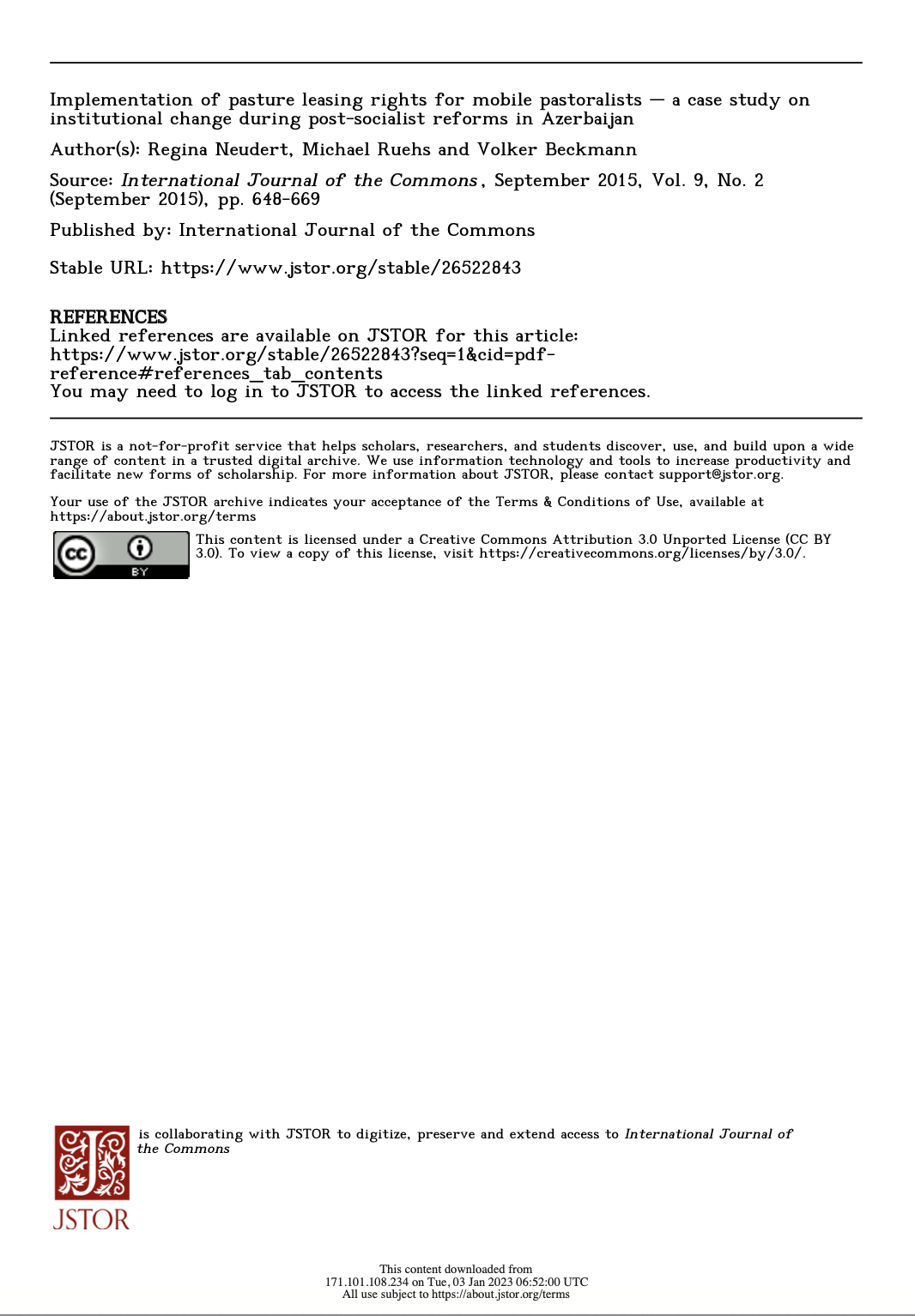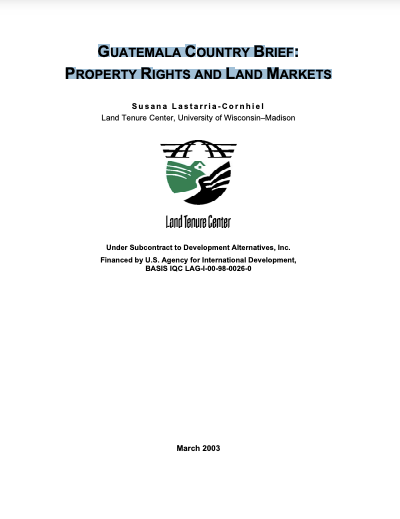Korea (Republic of) Civil Code
Armenia’s Transformative Urban Future: National Urban Assessment
The National Urban Assessment for Armenia provides a snapshot of the country’s urban sector and offers insights to achieving prosperous and sustainable cities. Armenia is highly urbanized, with the population concentrated in Yerevan and its surrounding areas given the capital’s geopolitical, economic, and cultural legacy. Opportunities exist to develop well-planned infrastructure along with balanced resource distribution among Yerevan and other cities, while leveraging Armenia’s cultural and environmental assets.
Implementation of pasture leasing rights for mobile pastoralists – a case study on institutional change during post-socialist reforms in Azerbaijan
Our study focuses on pasture reform in Azerbaijan within the context of transition and pasture reform in Central Asian and Caucasian countries. Despite the rapid emergence of individualised rights for pasture plots, which is an exceptional development in this region, pasture reform in Azerbaijan has received little attention in the scientific literature.
CHALLENGING INSTITUTIONAL FRAMEWORKS IN LAND ADMINISTRATION: Many institutions, but less property rights (Case of Burundi)
Land administration as one of the mechanisms of availing property rights to owners cannot be achieved unless there are well-functioning and coordinated institutional frameworks. This paper explored the challenges emanating from the existing institutional frameworks dealing with land administration in providing property right in Burundi. A mixed research design has been applied to capture qualitative and quantitative data. A desk review of different government reports, academic papers and books have been consulted.
2012 Indice globale della fame
Nelle ultime due edizioni l’IndiceGlobale della Fame (Global Hunger Index - GHI) aveva approfondito temi che sono tuttora di grande attualità: la denutrizione infantile e la volatilità dei prezzi dei beni alimentari. Gran parte dell’Asia negli ultimi anni ha visto il PIL di diversi Paesi crescere con tassi superiori al 7%, ma la maggiore ricchezza non si è sempre tradotta in unmiglior accesso a un’alimentazione di qualità.
Guatemala Country Brief: Property Rights and Land Markets
In contrast to most Latin American countries with high land concentration, 1 Guatemala has been unwilling to consider re-distributive agrarian reform.2 One alternative proposed, therefore, for improving access to land for the rural poor is to make the land market more accessible. The following sections will describe Guatemala’s agrarian structure and land market, and assess the various land market programs implemented in Guatemala since the 1950s, focusing mainly on those undertaken in the 1980s and 90s.






